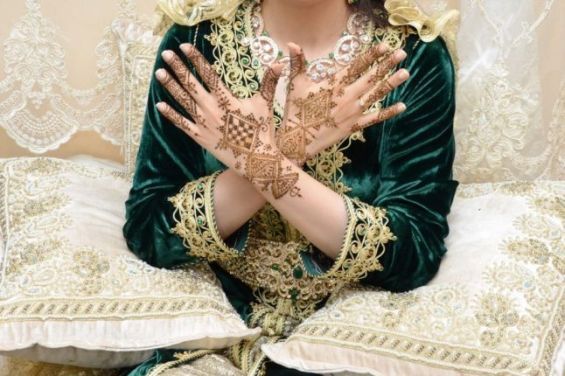In Morocco, the wedding services industry is evolving with the advancement of technology. Professionals operating in this industry are adapting their services to the new aspirations and demands of their clients, future brides and grooms. One of these demands is the new-to-the-market «no photos» rule.
Although new to our society and to Moroccan weddings, this rule is gaining momentum and is being more and more requested by couples wishing to celebrate their weddings with family and friends. In northern Morocco, a region known for its women-only and men-only weddings and parties, the «no photos» policy has gained significant popularity and demand.
An all-female «guard team»
A Martil-based all-female «guard team» decided to deliver, offering to enforce the «no photos» rule during weddings, engagement parties, and other ceremonies. Their group, Firkat al Amal (The Hope Group), was created as a result of a shared vision.
«The idea came to me when my daughter was getting married», the leader of the group, Zakia Ziane, told Yabiladi. «I did not want guests to take photos during the wedding, and I hired people to enforce that rule, and I found the idea to be ideal», she recalled.
Then Zakia and other women in her family decided to give it a go. «It started as a joke», the mother quipped. But what started as a joke has become a real job for her, her sister-in-law, and many other female members of her family, creating one of the few «wedding police» groups in Morocco.

To Zakia, their group came to fill the gap and find a solution to a problem that many women are suffering from: privacy. «We used to be bothered by people who would take photos of others during weddings», she argued. «We would be invited to a family event, like a wedding or an engagement party, and notice that some of the guests were taking photos of the bride and even the invitees», she detailed.
What she finds «annoying» is that these photos are later shared with strangers and sometimes even on social media. «This invades the privacy of the guests, especially those who wear veils or niqabs. This is because they may feel more comfortable not wearing a hijab in a female-only environment», Zakia explained.
Firmly yet gently enforcing the «no photos» rule
Operating since July of 2023, Zakia and her team make sure to remain recognizable when hired to enforce the «no photos» rule. «We wear a special uniform, with badges», said Zakia, sharing photos with her team dressed in women's suits with a police-like badge that reads «no photos» on the arm.
Once on location, the team disperses, with one guarding the bride and others scattered in the wedding venues to detect any violations. But when the rules are broken, Zakia and her team try to deal with the situation firmly yet gently.
«We make sure to approach the guests in a polite way», she insisted. «Guests could get a little bit annoyed by the rule; they don’t understand that we operate following the instructions of the bride or the groom», she added.
But rules are rules to Zakia. When a guest refuses to abide by the rule, the team uses dialogue. «Sometimes we get guests who get angry and say, 'No, the bride is my cousin or niece, and I want to take photos.' But we insist, nicely, and try to convince them without causing a problem, and most of the time they agree», she explained.

When some of the guests, aware of the rule, sneak a photo, Zakia and her team have to swiftly react. «We remind them of the rule and ask them to show us their phone and delete the photo or the video», she firmly said.
While most guests abide by the «no photos» rule, given the notoriety of the practice in the region, Zakia recalls an incident that once happened during a wedding. «Once, we had a woman who insisted on taking photos. We tried with her. When we couldn’t convince her, we informed the bride’s brother, who gave her an ultimatum: either stop taking photos or leave the venue, and she left».
A new revenue
In addition to the new concept, this job has given Zakia and her all-female group a chance to earn a living and support their families. Previously housewives only, members of the Amal group have indeed been able to secure a living through this ever-growing service.
«We started as four women, but now we are expanding depending on the demand and the size of the wedding venue. We hired new members to also help other women support their families», Zakia proudly declared.

The group is now requested in other parts of the country, with the service expanding outside of northern Morocco. «We had jobs in Fes, Meknes, Casablanca, and even Agadir», she added.
While gaining momentum in Morocco, the «no photos» rule at weddings has also spread among Moroccans living abroad, with some even distributing special phone covers for guests to prevent them from taking photos and videos.





 chargement...
chargement...













